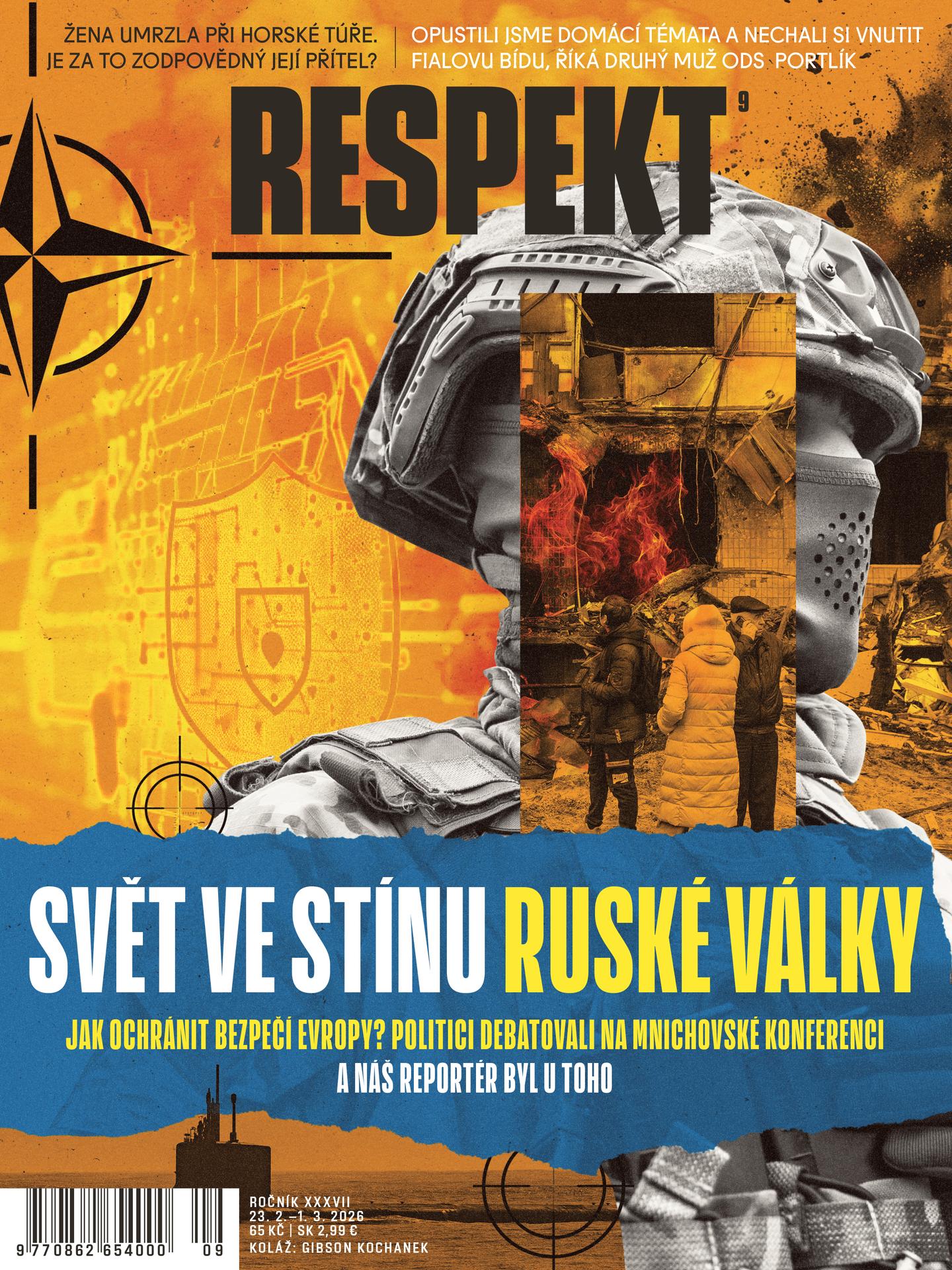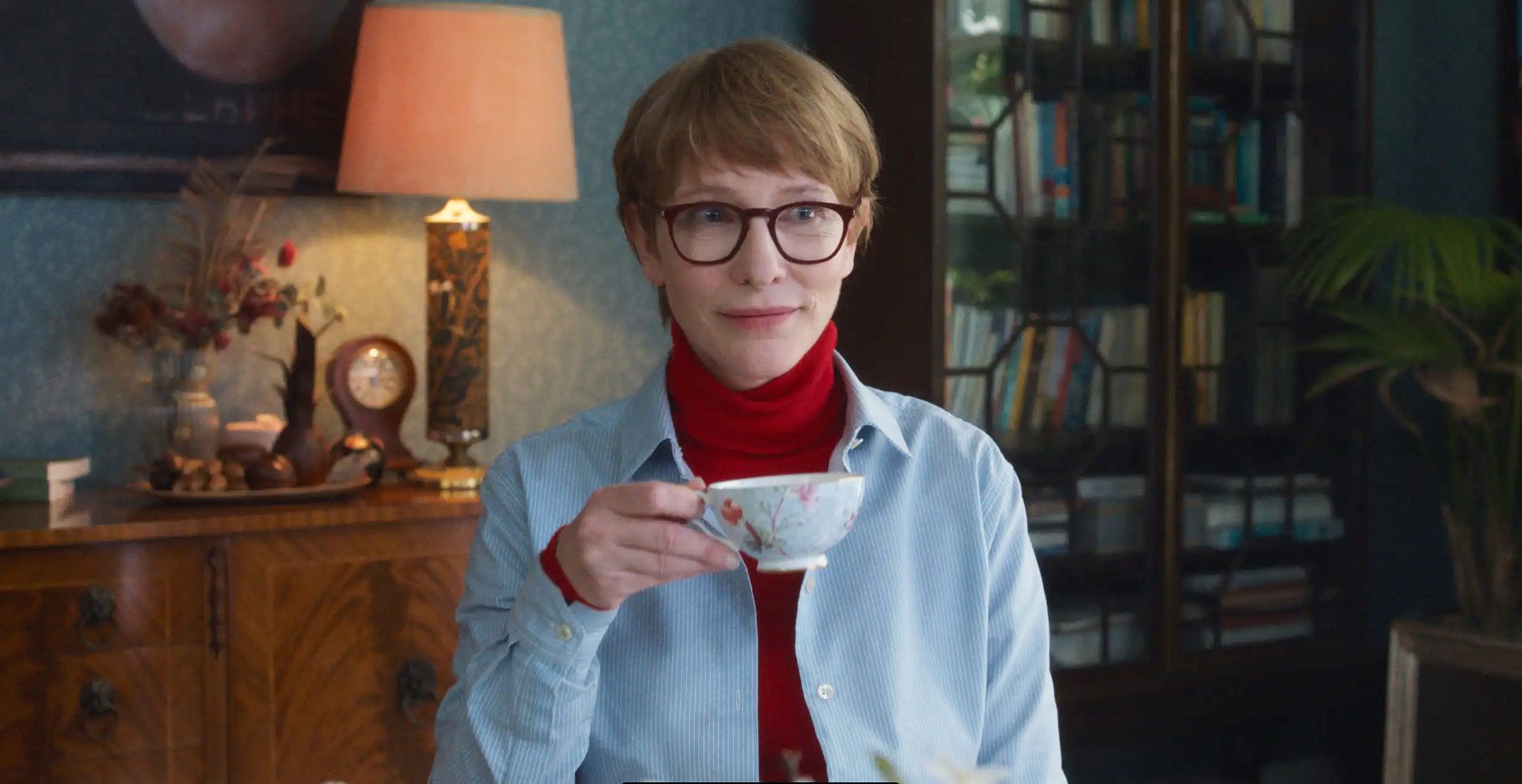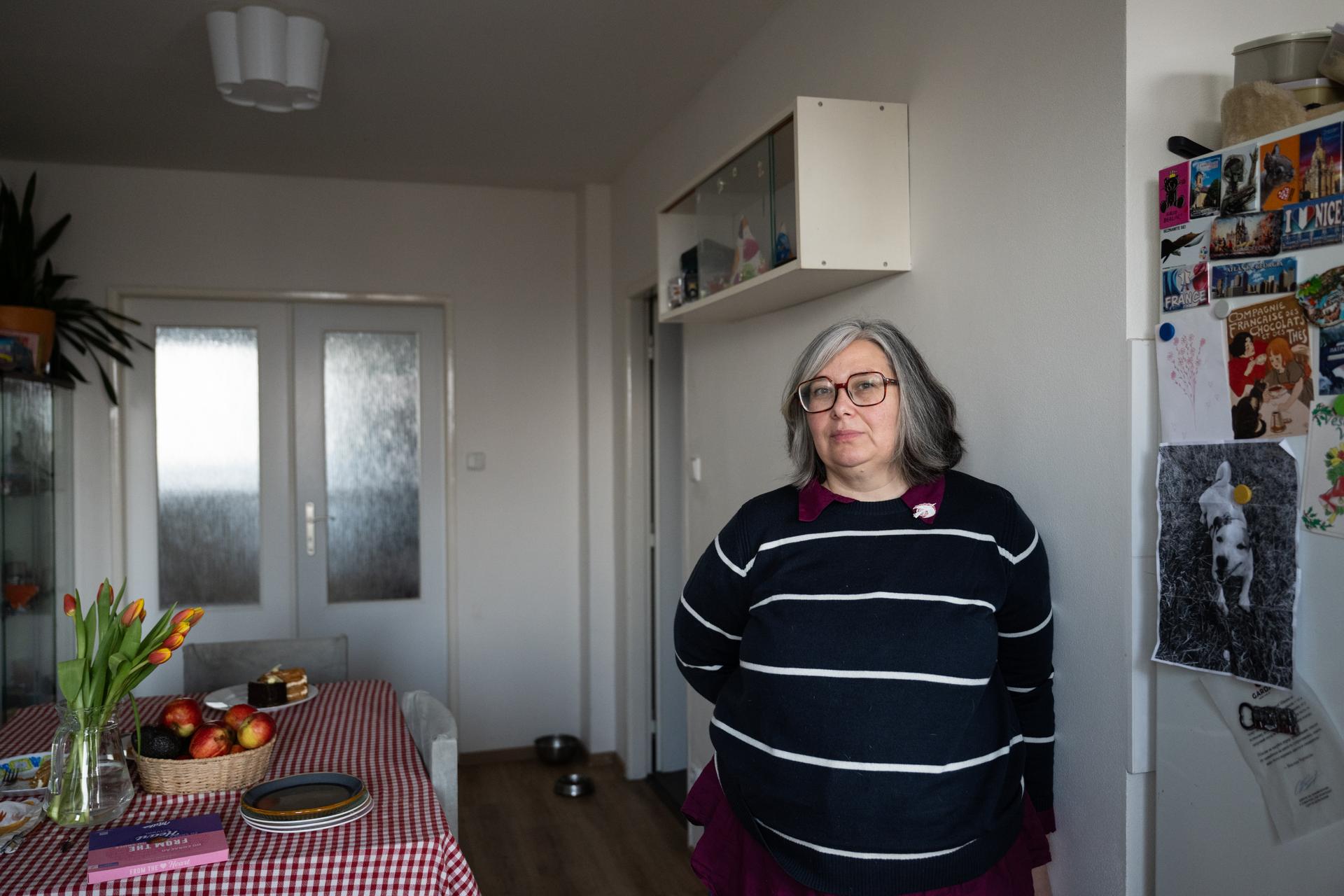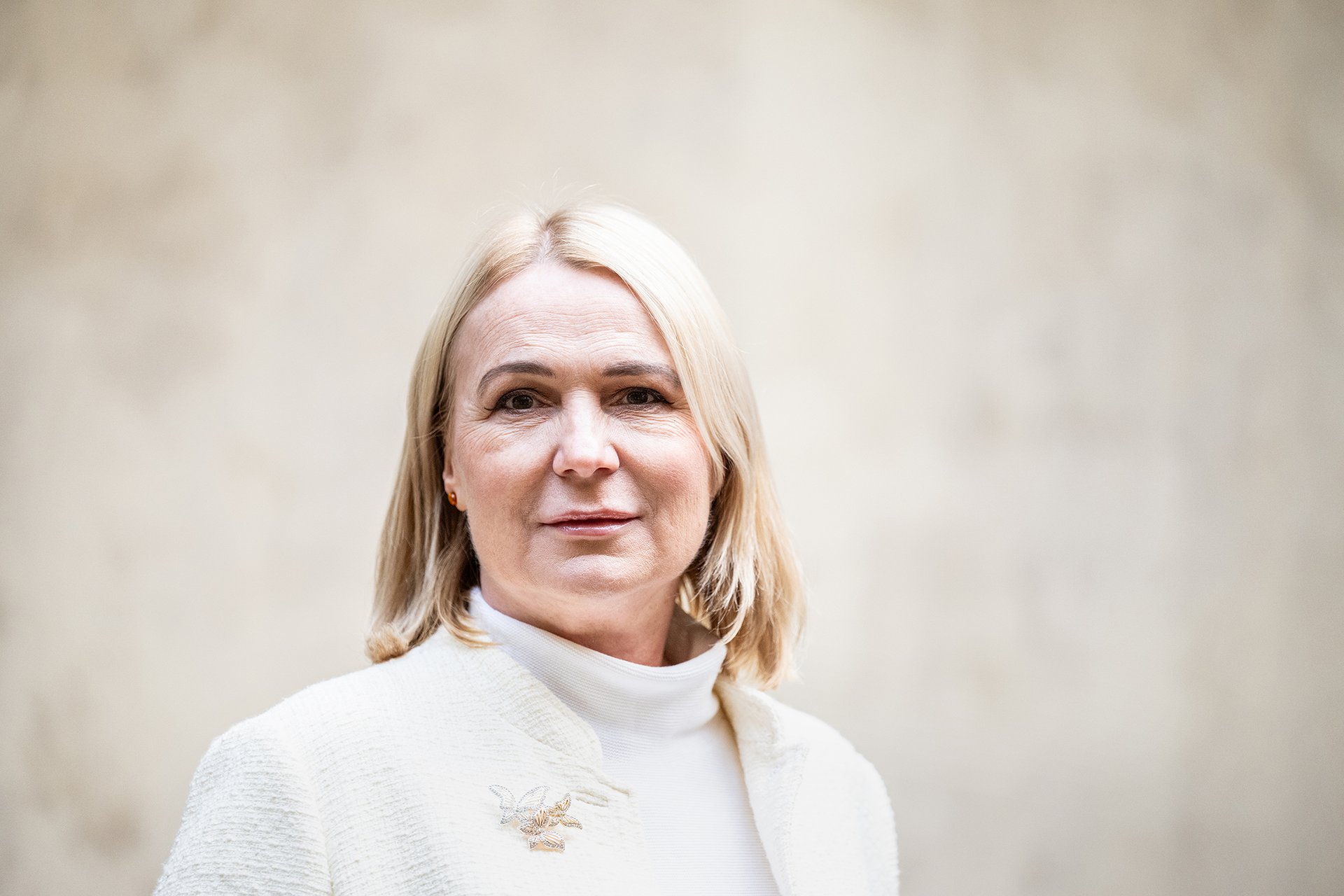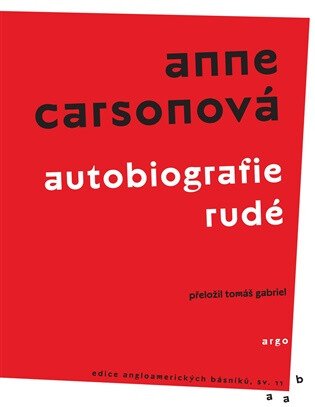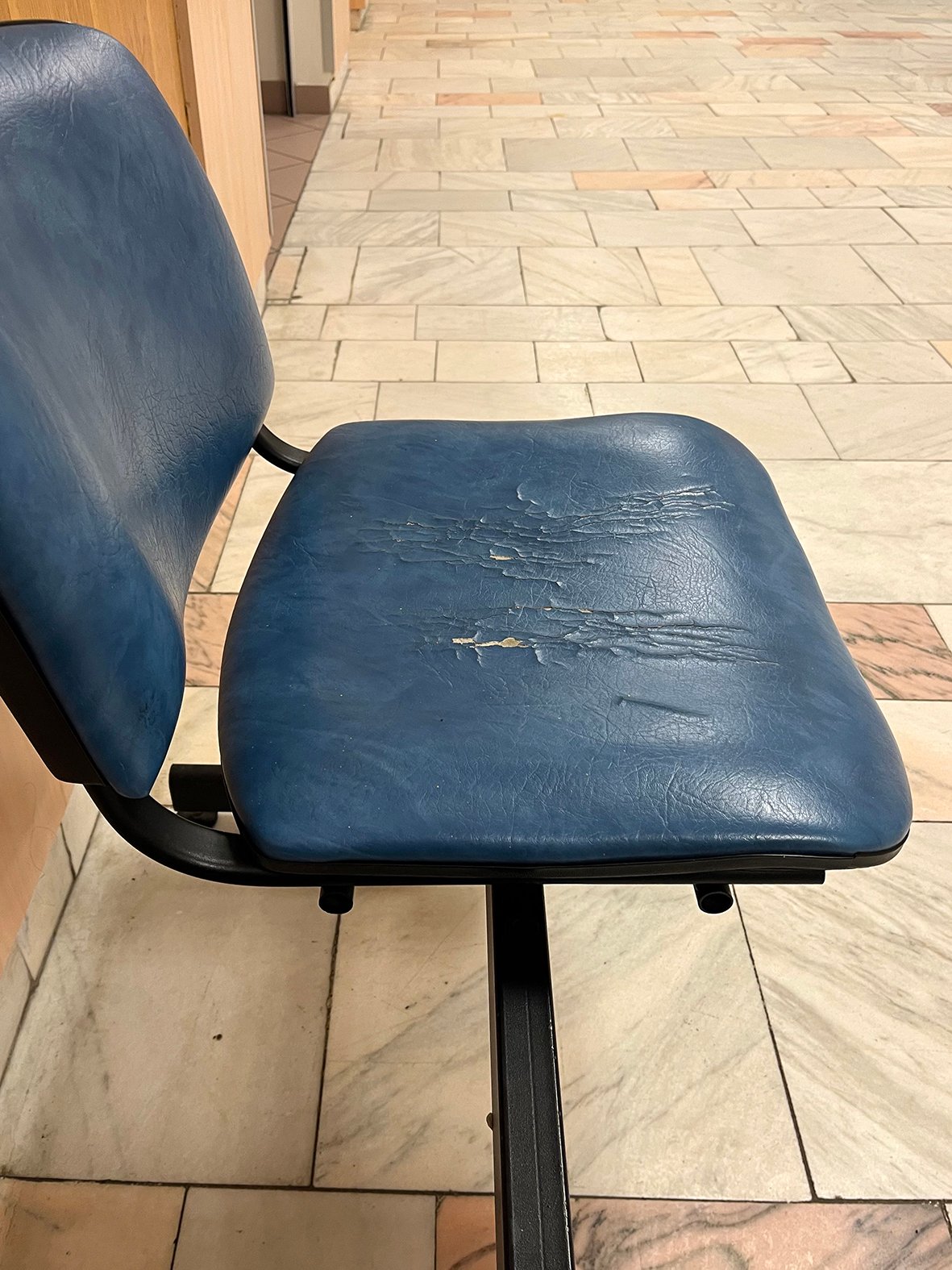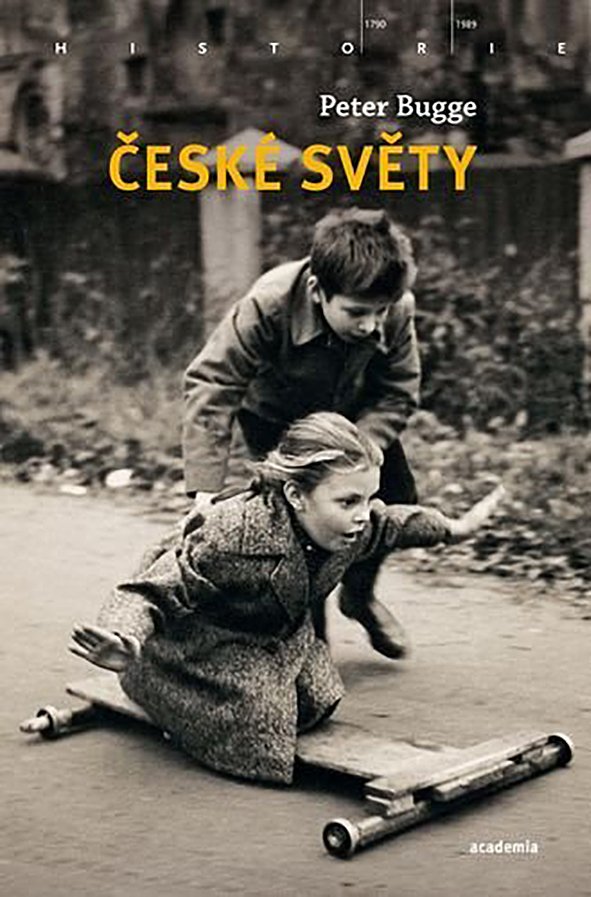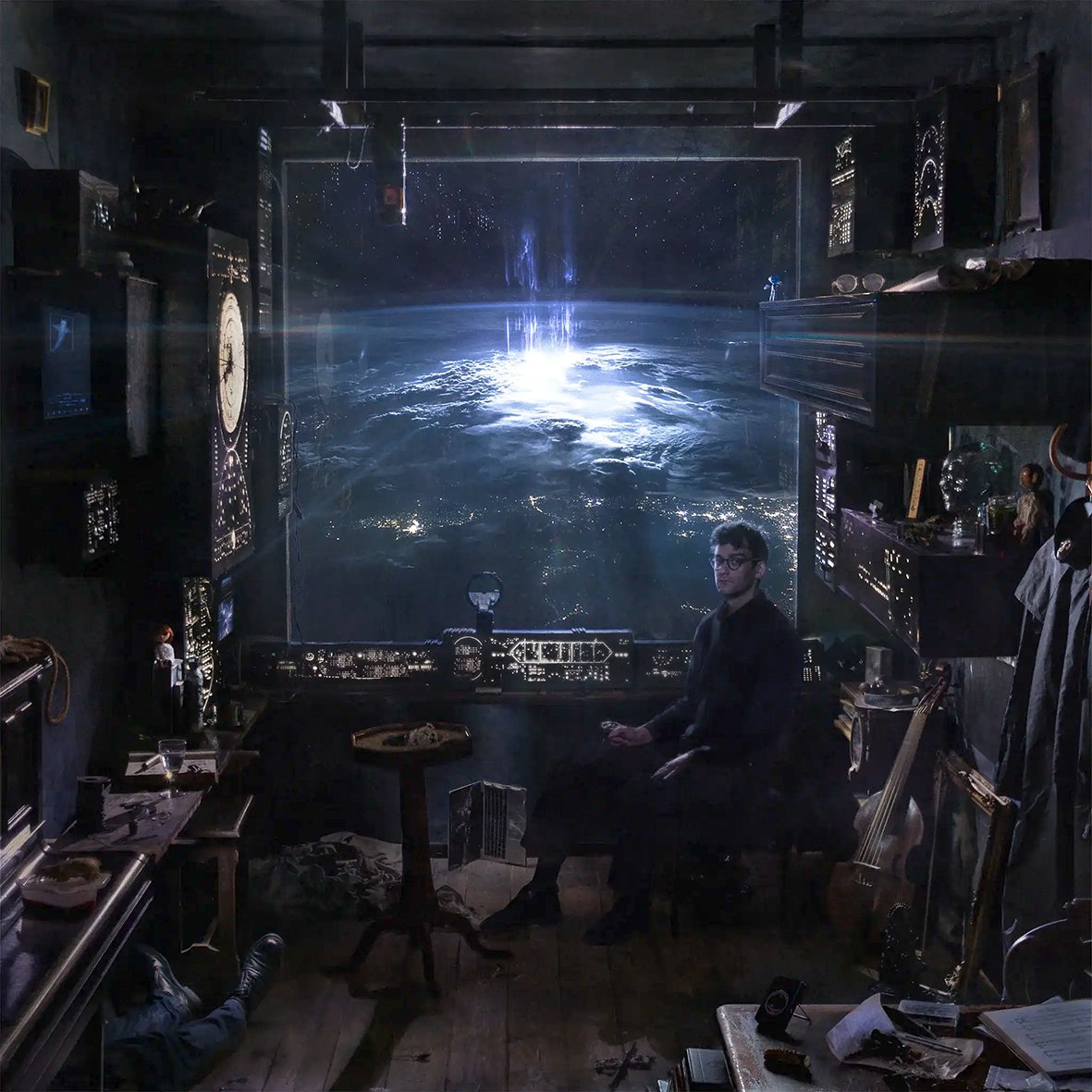They left and won’t come back
Report from Moldavia, a depopulating country
In the temperate zone, it is difficult to find a rural landscape that has a special charm in the beginning of spring. Moldova is definitely no exception. Rather, the steppe grass on the mildly and infinitely sprawling hills is still burned by winter frosts and the soil below it is wet and muddy. The tawny spaces are intersected by leaky roads that connect similar villages and towns: a crumbled factory on the edge, a glittering golden dome of the church in between, and a tangle of low one-story houses crouched as if an invisible force was pushing them to the ground. The walls are gray or faded blue and in the gardens there are gradually dismantled wrecks of cars and other remains of tools and machines that wait to become useful. Iron struggles for a place with bare trees and bushes.
Mohlo by vás zaujmout:
Czech version of the article


From the monolithic, unsightly mass of human dwellings, the new bright orange plaster, the repaired roof, the white plastic windows, or the exhibition gate in the fence, occasionally appear. It usually means one thing: a family member who lives here regularly sends some of his earnings from abroad. From Italy, Russia, France, Germany, Britain, Canada. Enough to keep those who have stayed at home comfortable, buying food, clothes and other necessities, with an occasional surplus to sustain the option of improving their modest cottage. Officially, over three million people live in the country. In fact, the reality is half that figure. The other half lives and works abroad. Adults leave, take their children with them, or leave them at home until they can afford to move away. According to estimates, three hundred people leave Moldova every day, most of which will never return, and the country is rapidly depopulating. A big problem sometimes has a new - and confusing - facade.
Hard, but the best
Viorica Mamaliga is a cheerful young woman. Every time she makes a joke, and she does it often, she pauses for a moment, leaving the listener uncertain and before laughing impishly. This week, times of silence are a little longer than usual. It's Thursday - and on Sunday her husband left the country for a scheduled six months. The Mamaliga family has been running this model for several years. Her husband has been working in Western Europe for six months, saving some of his money and sending a portion of it home while remaining at home for the rest of the year. This way, he went to Ireland for the third time, where he works in the slaughterhouse, and work and life is good there. 29-year-old Viorica stays with her five-year-old son Cornelius and her sixty-year-old mother in Vorniceni, a town about half an hour's drive from the capital, Chisinau. “It's tough, but still the best decision,” the brunette says with a shrug before she starts talking loudly in the direction of her mother, who is helping her to bake.
She is staying in Vorniceni all year around for several reasons. She doesn't want to leave her mother alone, who would be left on her own after her departure. Viorica’s brother also moved away and he rarely returns to Moldova, which his sister can’t forgive him for. Both of her brothers-in-law are abroad and importantly, Viorica Mamaliga has a job in Vorniceni. She is in charge of what is called „community development“ at the local city office: she is looking for books in the local library, technology to remove snow from the streets as well as investors who would like to set up a small business in Vorniceni. She is trying to convince fellow citizens to engage in the city's operations on occasions other than during elections. “My job is actually to do everything to keep someone here,” she says.
Her possibilities to succeed are limited. Forty percent of people have moved out of the district in which Vorniceni is situated in the last ten years, and others are leaving. There is no work in the neighborhood and the work that is here is poorly paid. With one clerical salary, Viorica would not sustain herself, her son and her mother so the family relies on her husband's money earned in Ireland. When Viorica Mamaliga passes through her town, she exchanges greetings with everybody and regrets that at the end of February there is no point in showing the local biggest attraction, the old forest, which is still bare. “And that's another reason that keeps me here. I like it here, it's my home. It's horrible to see how it gets depopulated,” she says.
Viorica wants stay at home and she is doing everything to make others stay as well. At the same time she knows that her future lies in Ireland.
It gradually becomes clear that this life “at home” is also provisional. Her clerk job exists only thanks to one of the European Union's development programs. When her mother will not be here any more, Viorica would remain alone with her son in a slowly depopulating city and she will have two options. “Either Moldovan politics will change fundamentally and it will bring some hope that there is any sense in trying to do something. I do not believe this. Or we will go to see my husband in Ireland, in search of a job to live in a country where the life is good and schools are better for our children,” she says. “And it will be tough, but it will be the best decision,” she describes her future departure from the city she is now trying to keep alive.
Farewell, countryside
The exodus began in the late 1990s. After the collapse of the Soviet Union, Moldova plunged into a profound economic crisis that made it the poorest country in Europe. “Nevertheless, we still believed that at home it was bad, but that abroad it was even worse,” recalls Silvia Bicenco, who is currently leading the local branch of the Czech non-governmental organization People in Need after shuttling between business and state administration in Moldova and abroad. “Then the first people decided to go to work in Romania. And then even further, to Central and Western Europe. It turned out that it was bad at home and better abroad,” she says.
The first wave of emigrants followed. There were mostly thirty-year-olds leaving. Originally just to make money – often in illegal work - and then they would return home. Children were often left to be cared for by their grandparents or other relatives. “But the return was not so easy. Most families have become dependent on money earned abroad. It was only because of this money that it was possible to live a decent way,” explains Bicenco. That is why also young people have left since the mid-2000s’ - after finishing elementary school, apprenticeships or university. They left to go to the European Union or to Russia, mainly to Moscow and its surroundings. “Almost none of them want to return because they have no obligations here,” a serious forty-years old says in fluent English.
The mass departure and the fact that expatriates do not forget their relatives and send back money creates a paradoxical situation. Moldova has almost twice as many inhabitants officially than in reality. Unemployment is, according to official statistics, negligible, but this is because a substantial proportion of adults do not live in the country. Moldova can boast good economic growth, but a quarter of its gross domestic product is made by remittances, money that expatriates send to the country. This is a world record according to the World Bank.
In Chisinau, the capital, with a population of half a million people, there is nothing unusual to note at first sight. After dark, though, its streets become empty. Otherwise it is not much different from other major cities in the post-Soviet part of world. On the main boulevard, lined with flashy buildings from the 1950s, expensive fashion brands have their shops and it is difficult to cross the stream of cars. Building cranes rotate on the outskirts of the city and apartment buildings are growing. “Chisinau will survive. There is more work to do and it attracts people who do not want or for some reason cannot leave the country. Chisinau and a few larger cities. The rest of the country will be empty in the next generation,” Bicenco predicts.
What should I do there?
Diana Raileanu (39) knows the countryside and Chisinau well. She grew up in Drochia, a county town in the north of the country but she studied and worked in the capital for several years. But she also knows Venice – she avoids the side streets, where every tourist inevitably encounters canals and dead ends in an effort to evade the crowded main streets, as if she would be one of the local people. She has been living here for two years and before that she spent seven years in Belgium. "I didn't leave because I had to. Chisinau wasn't enough for me. I was sure I could achieve more,” an elegantly dressed woman says describing her life matter-of-factly and systematically as someone driven and one who knows what she wants.
She had been thinking about leaving for a long time, having an easier way than most of her fellow citizens with her State exam in English and Italian but it was only because of the job offer that her partner had received that made up her mind to leave. They moved to Liege in Belgium. She did not want to follow the stereotype of an Eastern European immigrant, who performs menial jobs. In Belgium, she found a job in a logistics company for fashion boutiques. She is now the representative of that company in Venice.
She is satisfied with her Italian life. No official obstacles stand in her way. Similar to many Moldovans, she has a Romanian passport too (both countries have a strong historical bond and people speak the same language) and here she is simply an EU citizen working in another member state. The decision to leave has been made both for herself and for her parents in Drochia who she can support financially. She hasn't forgotten about her home abroad even after ten years visiting her family four or five times a year. She wonders what the impact of large scale migration will be on Moldova.
„I'm happy here, but I'm not saying I will never come back,“ she says. Similarly to Viorica Mamaliga, who - disgusted by the Moldovan political scene - is likely to leave. The same reason is keeping Diana Raileanu in Italy. „This is not the common cursing on policy,“ she says. "I would come back only if I have at least a basic certainty of what will happen tomorrow, the day after tomorrow, or in a month and I do not have it in today's Moldova,” she adds.
Just as official Moldovan statistics offer satisfactory figures, Moldovan government appears to be satisfactorily healthy from the outside. Zealously pro-European and at least by declarations claiming a functional and transparent rule of law modeled on the EU - where Moldova has been officially heading for ten years. There are more blue-and-yellow flags on official buildings in Chisinau than in many EU capitals.
The pro-Western politicians came to power in 2009 after violent protests that - due to suspicion of falsifying the election results - ended the Communist Party's eight-year rule. The repeated elections resulted in a close victory for the pro-European coalition. It has brought hope to Moldova’s citizens and has become a boon for EU politicians. However, its reputation was destroyed by corruption scandals, the most famous of which came in 2014. In Moldova this scandal is generally known as the „one billion case“ – as one billion US dollars disappeared from the country's banking system, equivalent to one-third of the country's annual revenue. There is a substantiated suspicion that fraud is linked to a governmental Democratic Party, controlled by Vlad Plahotniuc, the oligarch and the most powerful man in the country. In the last two years, the EU itself lost patience with the Moldovan government and significantly reduced the generous financial support given to Chisinau.
„To come back? It would be self-sacrifice and I know, it would be in vain. It’s more likely that I’ll live in Italy.“
The exodus of so many people (and the most able demographic of the population) is changing the country significantly. In year-on-year UN comparisons, Moldova is the least developed country of the continent, just above the developing world limit. Everything is annihilated by the ongoing political stalemate: the only opposition to the current government are the socialists of current President Igor Dodon, a pro-Moscow party full of post-Soviet nostalgia. In a country where the near majority of voters is identifying itself rather with the West, socialists have no chance to enjoy any significant success. A new, protest and pro-European party ACUM (Now) has succeeded in the recent elections, but it is not strong enough to break the monopoly of the two strongest parties.
"I would give up just anything from my current life if I could feel that such a sacrifice would not be wasted. But for now, I'm more valid to myself and my parents, "says Diana Raileanu.
Trying to round it off
But some people are coming back. Those who want to have fun at a swimming place in Central Moldova have two options. To drive to the capital city of Chisinau, or to the country's second largest city, Bălţi, a town with a population of one hundred thousand people, just two hours’ drive away. Public swimming pools don’t exist elsewhere. A new option will come this summer. On the outskirts of Sîngerei, a small county town, one small swimming pool is being constructed. A tiny brunette Veronica Černogal is building it together with her husband.
She returned to her Sîngerei home town three years ago and until now she has been at home with her small son. For six years, she had been living in Turin, Italy, where she worked in a candy store and a sports shop. She met her husband there. Already living together, both of them moved to France for a year and then returned to Moldova. The single-minded thirty-year-old looks at her life, her city and her swimming pool without sentiment. Returning home was the result of complicated and thorough family decision-making – the husband, a couple of years older, spent half his life in construction work in Western Europe and „just couldn't and didn't want to go any further“, Veronica Černogal says. Usually, a graduate economist would like to stay in France or Italy for some time, but instead she decided to go home and to try to start something really big. The result is a construction site that already has clear outlines, will be filled with water and likely have paying visitors in June.
All life-long savings have been invested into the spouses' idea and but a bank loan was still needed. Veronica made a calculation that costs should be returned in six years and then the swimming pool should start to earn money. “Satisfied? I do not know yet. I don't know what's going to happen. But I am proud because it is clear that we will round it off,” she says standing at the edge of an empty pool. "We're trying to. Here we are, nothing else makes sense.”
It won't be easy. According to international comparisons, doing business in Moldova is the most difficult in Europe, being comparable to the African or Central American average.
Mohlo by vás zaujmout:
Czech version of the article
The project is co-financed by the Governments of Czechia, Hungary, Poland and Slovakia through Visegrad Grants from International Visegrad Fund. The mission of the fund is to advance ideas for sustainable regional cooperation in Central Europe.
Pokud jste v článku našli chybu, napište nám prosím na [email protected].

